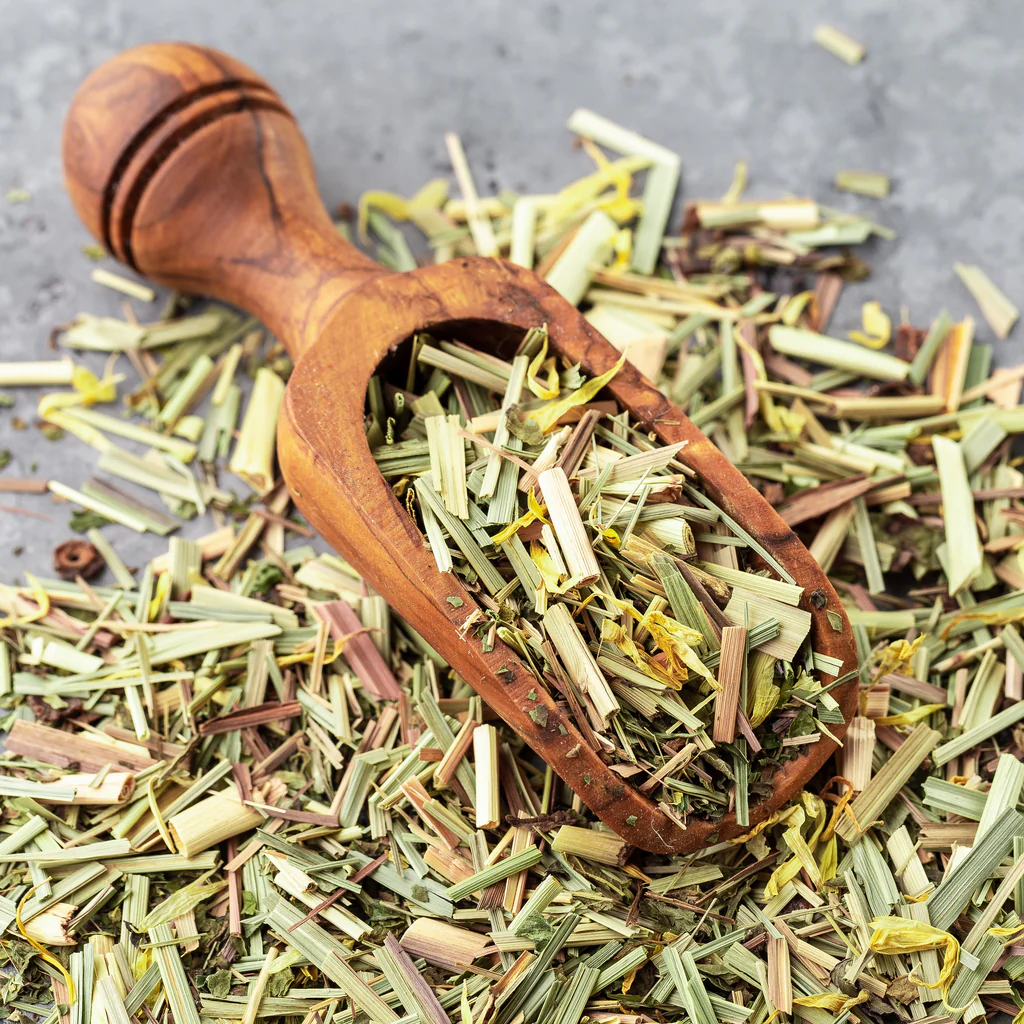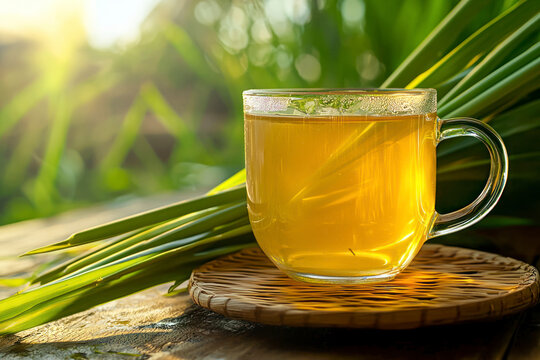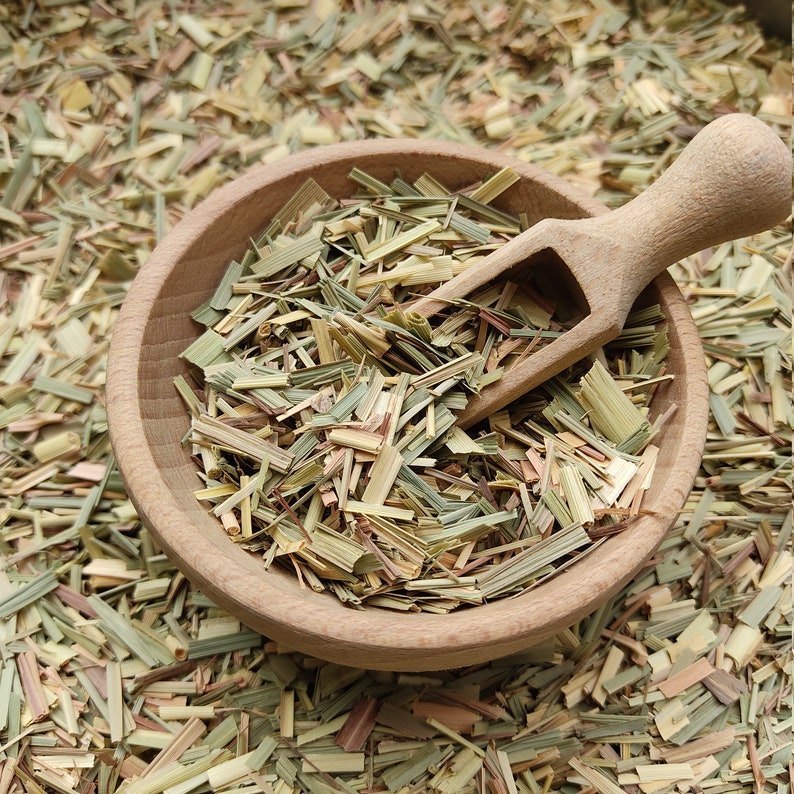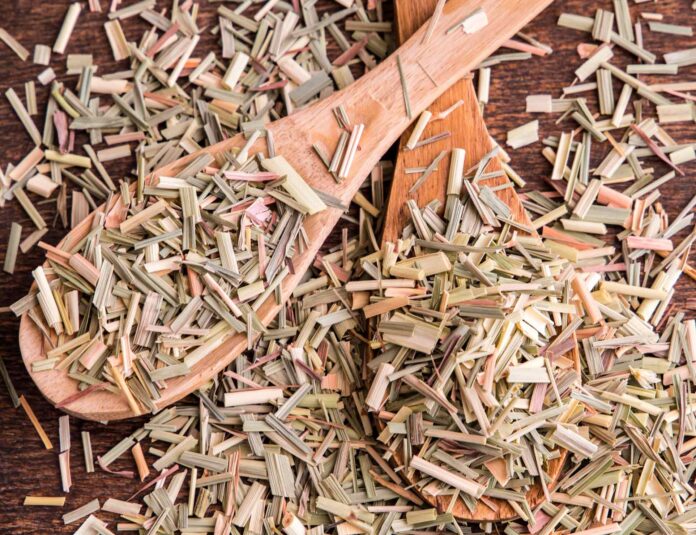INTRODUCTION:
Lemongrass is a tall, fragrant grass commonly used in cooking, medicine, and cosmetics. It has a strong lemon-like smell and is mostly grown in warm, tropical places. People use lemongrass in teas, soups, and curries for its flavor. It is also known for its health benefits, such as helping with digestion, reducing stress, and fighting infections. The oil from lemongrass is used in soaps, perfumes, and as a natural insect repellent. It is easy to grow and is an important plant in many parts of the world.

English – Lemongrass
Hindi – Lemon Grass / Gandhatrini
Tamil – Elumichai Pul
Telugu – Nimmagaddi
Malayalam – Cheriyanarin
Kannada – Nimbe Hulu
Bengali – Gondho Ghash
Marathi – Gavati Chaha
Urdu – Lemongrass
Arabic – Ushb al-Laymun
HEALTH BENEFITS:

Anxiety and stress relief:
The calming aroma of lemongrass is often used in aromatherapy to help reduce anxiety. Some studies on rats also found that lemongrass tea significantly reduced anxiety and depressive symptoms.
Antioxidant properties:
Lemongrass is a rich source of flavonoids and phenolic compounds, which have powerful antioxidant and anti-inflammatory benefits. This helps the body fight off free radicals that can damage cells.
Anti-inflammatory effects:
Compounds like citral within lemongrass have anti-inflammatory effects that may help combat chronic inflammation, a factor in many adverse health conditions.
Digestive health:
Lemongrass has long been used as a folk remedy for digestive problems like indigestion, bloating, and stomach cramps. Compounds in lemongrass are believed to help relax stomach muscles and promote healthy digestion.
Oral health:
Chewing on lemongrass stalks is a traditional practice for boosting oral health in some cultures. Modern studies suggest that lemongrass essential oil mouthwash may help reduce plaque and improve gum health.
Weight management:
The diuretic properties of lemongrass can help flush excess fluids and toxins from the body, which may aid in weight management and detoxification.
Blood pressure and cholesterol management:
Some studies indicate that lemongrass may help lower blood pressure and reduce LDL (“bad”) cholesterol and triglyceride levels.
Antifungal and antibacterial properties:
In lab settings, lemongrass oil has shown potential for killing bacteria and combating fungi, such as Candida albicans, which can cause yeast infections.
Cooking:
It is a common ingredient in Asian cuisine, especially Thai and Vietnamese dishes, where it adds a citrusy flavor to soups, curries, and stir-fries.
SIDE EFFECTS:

Blood thinners:
Lemongrass may increase the risk of bleeding when taken with medications like warfarin or aspirin.
Diabetes medication:
It can potentially lower blood sugar, which could cause hypoglycemia when combined with antidiabetic drugs.
Blood pressure medication:
Lemongrass is a natural diuretic and can lower blood pressure, potentially causing an effect that is too strong when combined with antihypertensive drugs.
Liver-processed drugs:
Lemongrass may affect how the liver breaks down certain medications, which can change their effects and side effects.
Pregnant and breastfeeding women:
Lemongrass can stimulate menstrual flow and uterine contractions, which could increase the risk of miscarriage.
HOW TO USE:
1. In Cooking:

Use the fresh stalk:
Peel the outer layers and use the soft white part by chopping, crushing, or bruising it.
Add to soups, curries, teas, or marinades for flavor.
Remove before eating:
Lemongrass is tough, so it’s usually removed before serving the dish.
Make tea:
Boil chopped lemongrass in water for 5–10 minutes. Add honey or ginger for extra taste.
2. As Herbal Medicine:
For digestion and cold relief:
Drink lemongrass tea to help with stomach problems, colds, or headaches.
As a body detox:
Lemongrass tea may help cleanse the body and reduce bloating.
3. As Essential Oil:
For massage or relaxation:
Mix lemongrass essential oil with a carrier oil (like coconut oil) and use it for massage.

In aromatherapy:
Add a few drops to a diffuser to reduce stress and refresh the air
4. As Insect Repellent:
Keep mosquitoes away:
Burn dried lemongrass or apply diluted essential oil on the skin.
5. In Gardening:
Natural pest control:
Plant lemongrass around your home or garden to repel insects.
PRECAUTIONS:
Some people may be allergic to lemongrass, so test a small amount first.
Pregnant women should ask a doctor before using lemongrass. Don’t give lemongrass tea or oil to babies without a doctor’s advice




